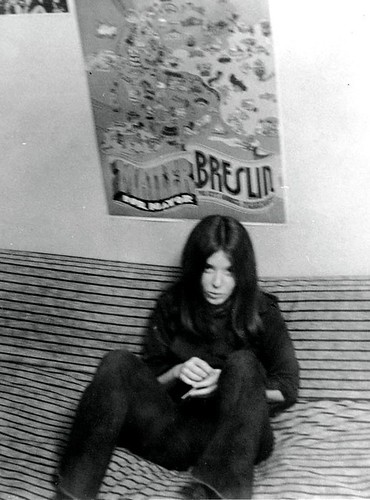Here's what the Online Etymology Dictionary says:
In English originally "book learning" (in which sense it replaced Old English boccræft); the meaning "activity of a writer, the profession of a literary writer" is first attested 1779 in Johnson's "Lives of the English Poets;" that of "literary productions as a whole, body of writings from a period or people" is first recorded 1812.
Great literature is simply language charged with meaning to the utmost possible degree. [Ezra Pound, "ABC of Reading"]
Meaning "the whole of the writing on a particular subject" is by 1860; sense of "printed matter generally" is from 1895....
Oh, hang on. I have a point I'm making. But I have Dylanmind and I must disrupt my literature — such as it is — to do my Dylan imitation. You're reading, but imagine
hearing it:
And Ezra Pound and T. S. Eliot
Fighting in the captain’s tower
While calypso singers laugh at them
And fishermen hold flowers
T.S. Eliot won the Nobel Prize in Literature in 1948 —
"for his outstanding, pioneer contribution to present-day poetry."
Ezra Pound never won. Nor did Ezra Pound really fight with T.S. Eliot in the captain's tower, whatever that is. Back when "Desolation Row" came out, it was 1965, and we would have assumed that something called "the captain's tower" was a phallus, but people don't talk like that anymore. And why didn't Sigmund Freud win the Nobel Prize in Literature? That was some kick-ass literature he wrote. It came out in book form, and people read those books.

That's Ezra. Man, look at him. He looks like Bob Dylan.
Angered by the carnage of World War I, Pound lost faith in England and blamed the war on usury and international capitalism. He moved to Italy in 1924, and throughout the 1930s and 1940s he embraced Benito Mussolini's fascism, expressed support for Adolf Hitler, and wrote for publications owned by the British fascist Oswald Mosley. During World War II, he was paid by the Italian government to make hundreds of radio broadcasts criticizing the United States, Franklin D. Roosevelt and Jews, as a result of which he was arrested in 1945 by American forces in Italy on charges of treason. He spent months in detention in a U.S. military camp in Pisa, including three weeks in a six-by-six-foot outdoor steel cage, which he said triggered a mental breakdown: "when the raft broke and the waters went over me". Deemed unfit to stand trial, he was incarcerated in St. Elizabeths psychiatric hospital in Washington, D.C., for over 12 years.
Oh, Ezra. There are winners and losers, and he's a big time loser. But he said — see above — "Great literature is simply language charged with meaning to the utmost possible degree." He didn't say, it's got to be read. He said it is language, the best of language. That would include words written to be heard, not read, if only the words were good enough. But he had terrible political judgment.
Yet you are the literalist perhaps, and politics has no part in your assessment of the meaning of words. Literature is stuff that you read, and Bob Dylan's songs are designed to be heard mixed up with sounds from musical instruments, sounds that are not words at all.
But the Nobel Committee is not a committee on precision in language, and it controls the scope of the meaning of its prize. It doesn't have to give the prize to the person who most closely embodies the meaning of the name of the prize. And anyway, the committee is operating in Swedish. If you're so hot to be literal, start speaking Swedish.








